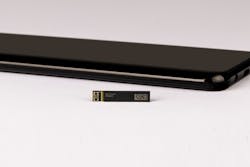Qualcomm, the world's largest seller of smartphone chips, said it had entered into a licensing deal with LG Electronics, resolving another key patent agreement ahead of the global rollout of 5G technology. The deal came as the San Diego, California-based company looks to overturn antitrust sanctions from federal regulators and pull its modem business out of the doldrums.
Qualcomm said the deal allows LG to develop, manufacture and sell 3G, 4G and 5G single-mode and multi-mode gadgets, including smartphones. While it declined to share any specifics about the deal, Qualcomm said the five-year agreement is in line with its established global licensing terms. Most of its overall profits come from reaping royalties on its patent portfolio, which Qualcomm claims covers all the fundamentals of cellular communications from 3G to 5G.
"This agreement builds on our long-standing technology relationship and reaffirms the value of Qualcomm's world-class patent portfolio," John Han, senior vice president of technology licensing, said in a statement. Qualcomm's biggest business is selling modem chips and RF components used in smartphones to make calls and access the internet. Sales of its 3G and 4G chips have been hurting in recent months as customers focus on developing 5G devices.
LG had been negotiating a new 3G, 4G and 5G patent license and chip supply deal with Qualcomm for months. LG’s patent agreement with Qualcomm lapsed in December 2018. LG, which uses Qualcomm's 3G and 4G modems, entered an interim agreement that ended in June. The slow progress stoked concerns that LG would have to delay the launch of its first 5G phone powered by Qualcomm's 5G modems, which are considered the world's most advanced.
The deal came together even after LG pushed to prevent Qualcomm from delaying antitrust action from a federal court that ruled in favor of the U.S. Federal Trade Commission in May. The court said Qualcomm had curbed competition in the cellular modem market, leveraging its monopoly to charge customers unfairly high royalty rates. Qualcomm was ordered to slash its royalty rates and to start licensing patents to rivals that had been frozen out of the market.
Currently the No.3 seller in the U.S. smartphone market, LG had argued in court documents that delaying the sanctions could force it into accepting another unfair licensing deal. LG's argument centered on its concern that putting the judgment on hold would help the cellular chip modem designer to strengthen its stronghold in the emerging 5G modem market. Qualcomm, the world's No.6 semiconductor seller, is challenging the ruling and arguing for an appeal.
Qualcomm has also argued that the proposed remedies would alter its licensing agreements in ways that would be impossible to undo if it defeats the decision. In July, chief executive officer Steven Mollenkopf said customers had continued to honor existing licensing deals in the second quarter despite the verdict. "We cannot predict the exact timing, but we expect a ruling on our stay motion in the near future," Mollenkopf said on an analyst conference call last month.
Qualcomm in April also reached a settlement with Apple that has opened the door for Qualcomm to supply modem chips to future iPhone. As part of the truce, Apple shelled out $4.7 billion and agreed to a long-term licensing and chipset supply agreement with Qualcomm. The company's shares have been under pressure since Apple acquired Intel's 5G modem chip business for $1 billion last month. Qualcomm is also trying to renegotiate a patent deal with Huawei.
About the Author
James Morra
Senior Editor
James Morra is the senior editor for Electronic Design, covering the semiconductor industry and new technology trends, with a focus on power electronics and power management. He also reports on the business behind electrical engineering, including the electronics supply chain. He joined Electronic Design in 2015 and is based in Chicago, Illinois.

